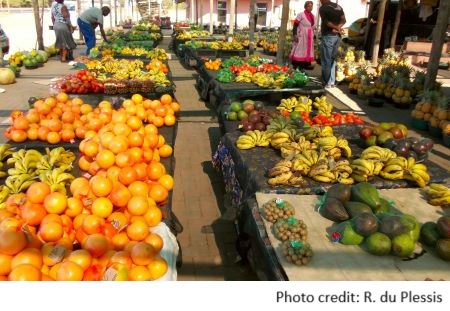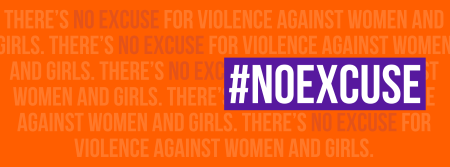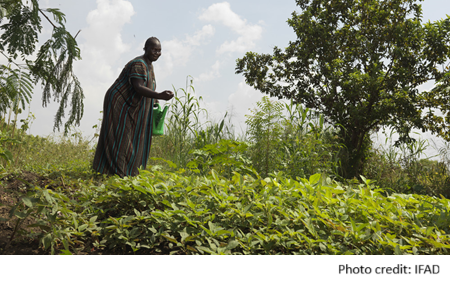The TPP agreement has been signed. What happens next? Should we shrug our shoulders and give up? Absolutely not. Ratification is down the road – possibly 2 years away.
There continues to be loud opposition. Business leaders including Jim Balsillie, co-founder of Blackberry, have been highly critical of the Intellectual Property Provisions while many organizations warn of the serious impacts on access to affordable life-saving medicines.
http://canadians.org/blog/trudeau-disagrees-canadians-expressing-concern...
Preliminary findings from analyses of existing data:
The International Center for Research on Women (ICRW) and the World Bank are researching the economic consequences of child marriage, with a view to using the resulting evidence to strengthen the case for ending this harmful practice.
The joint ICRW-World Bank study of the economic impacts of child marriage is still underway, but preliminary analyses suggest quite strongly that, in addition to harmful effects on girls’ health, education, rights and wellbeing, the economic impacts of child marriage, from the individual to the national levels, are very large. In addition, most of the benefits from ending child marriage would accrue to the poor, who are almost always the most likely to have higher rates of child marriage. Ending child marriage would help greatly to eradicate extreme poverty and promote shared prosperity.
Much more research will be undertaken in the coming months, but given what we already know, global leaders —particularly finance ministries and donors— should invest in ending child marriage as not only the right thing to do, but also a strategic investment in current and future economic and human development.
- See more at: www.CostsofChildMarriage.org
Despite all the political rhetoric about the economic benefits of trade agreements, there are compelling reasons to urge participating governments to step back and reassess the TPP. Click the link below to read a recent article from Joseph Stiglitz, published in The Guardian.
http://www.theguardian.com/business/2016/jan/10/in-2016-better-trade-agreements-trans-pacific-partnership
This new year marks the official launch of the 2030 Agenda for Sustainable Development. Adopted by world leaders last September in New York, this new agenda calls on countries to begin efforts to achieve 17 Sustainable Development Goals (SDGs) over the next 15 years. This global “to-do” list aims to end poverty, protect the planet, and ensure prosperity for all, creating a more just world where no one is left behind.
Canada has made a commitment to these global goals. In his ministerial mandate letter to Marie-Claude Bibeau, Minister of International Development and la Francophonie, Prime Minister Justin Trudeau stated that a top priority will be to "refocus Canada’s development assistance on helping the poorest and most vulnerable, and supporting fragile states." He specifies that this will include "supporting the implementation of the 2030 Agenda for Sustainable Development....”
Many of GRAN’s issues are addressed in the new SDGs, including health, education, gender equality and peace. We are finding that all of the goals are interrelated. When progress is made on one goal, there is a positive impact on other goals.
The more that people know about the Global Goals for Sustainable Development, the more effective the world will be at achieving them. Your help is needed to share the goals. Become more informed by following discussions and blogs, have conversations with family and friends, write Letters to the Editor and to your Member of Parliament, and share your knowledge and concerns on social media. If the goals are important to us, we will let our leaders know, and our leaders will work to make them happen.
Change will not happen without action and pressure from civil society and ordinary people everywhere. We need to hold our government accountable to the commitments made in New York in September. Let’s hope that 2016 is the year we all become involved and begin to create a more just and sustainable world.
Is the world ready to move from policy to action? What will Canada’s role be? What will your role be?
To find out more about the Global Goals go to: http://www.globalgoals.org
To see how education influences all of the Development Goals, have a look at the Global Partnership for Education’s most popular blog in 2015:
http://www.globalpartnership.org/blog/17-ways-education-influences-new-17-global-goals
Women and men are entitled to the full and equal enjoyment of all of their human rights and to be free from all forms of discrimination. Yet discrimination against women persists in many areas, directly and indirectly, through laws and policies, social norms and practices, and gender-based stereotypes.
Throughout their lives, women and girls in Sub-Saharan Africa are often denied their human rights and are at risk of experiencing physical, sexual and emotional violence. Grandmothers are at particular risk of deprivation and neglect due to widespread age and gender discrimination throughout Africa. Child, early and forced marriage and school-related sexual violence keep girls from getting an education and reaching their potential. Women and girls bear the brunt of many of the harmful consequences of armed conflict.
Read the message of UN Women Executive Director Phumzile Mlambo-Ngcuka on Human Rights Day:
”Today, on the final day of the 16 Days of Activism to End Violence against Women, we are reminded that one in three women worldwide is still subjected to violence. That is nothing short of a global pandemic and a massive human rights violation. ... It is time to match laws, policies and programmes to protect women’s rights with adequate budgets to ensure their implementation.”
- See more at: http://www.unwomen.org/en/news/stories/2013/12/ed-message-on-international-human-rights-day#sthash.ZSz6tlYH.dpuf
Médecins Sans Frontières (MSF) spokesperson warns the US House of Representatives that the text of the final TPP agreement extends patent protection in ways that will decrease competition, raise prices and limit access. It will also hamper innovations such as pediatric formulations of essential medicines. Read MSF's powerful testimony: http://www.msfaccess.org/content/msfs-oral-testimony-united-states-house-representatives-committee-ways-and-means
Gender-based violence (GBV) is a pervasive human rights issue. It often goes unrecognized and unreported, is accepted as part of the nature of things and is shrouded in a culture of silence.
School-related gender-based violence (SRGBV) is defined as acts or threats of sexual, physical or psychological violence occurring in or around schools and/or on the way to school. Girls are particularly vulnerable to SRGBV, which often stems from deeply rooted cultural beliefs and practices, power imbalances and gender norms. It includes acts of bullying, sexual or verbal harassment, physical violence, corporal punishment, non-consensual touching, rape and assault. It is a serious violation of human rights, increasing vulnerability to HIV and can have a negative impact on school attendance and the ability to receive a quality education.
SRGBV is widespread in sub Saharan Africa. Direct attacks on schools, armed conflict and sexual intimidation and exploitation at school and on the way to school often result in parents keeping their daughters at home rather than expose them to risk of harm. Moreover, the direct and indirect effects of widespread sexual violence can continue long after conflicts end. Children affected by HIV and AIDS are also at increased risk of sexual violence and being targeted for bullying.
Violence and abuse can have serious detrimental effects on children’s health and well-being and their ability to learn to their full potential. The consequences of SRGBV can have serious psychological consequences including low self-esteem, under developed social skills, and general anxiety. This in turn, impacts on concentration, may increase dropout rates and lead to reduced academic achievement. SRGBV prevents children, especially girls, exercising their right to a safe, inclusive and quality education.
There is a need for a coordinated, multilevel and multifaceted approach to tackle violence in schools, and one that recognizes the interrelated nature of different forms of violence both within and outside the school environment. The education sector has an important role to play in helping prevent GBV through gender-transformative teaching and learning approaches, supported by well-trained teachers and education personnel.
UNESCO along with UNGEI (United Nations Girls Education Initiative), UN Women, Plan International and partners have joined together to highlight Gender Based Violence with the campaign “16 Days of Activism Against Gender-Based Violence.” In addition, The Global Working Group to End SRGBV has joined the 16 Days campaign to raise awareness and the urgency with which SRGBV must be addressed. They have launched a ‘Call to Action’ during this period which highlights the major actions that need to be taken to end SRGBV. To see the Call to Action, daily blogs and further information, go to:
http://www.ungei.org/index_6096.html?utm_source=hootsuite
Today, December 1, is World AID's Day. It has been celebrated since 1988, to raise awareness about the AIDs pandemic and to remember the millions who have died. The toll that this disease has taken and continues to take, particularly in the developing world is beyond tragic, it is a global embarrassment that the slow progress to eradicate HIV/AIDS is condoned.
Although important gains have been made in access to treatment, it is still the case that in 2014 only 32% of children and 41% of adults living with AIDs are actually receiving treatment. Unfortunately statistics on women and men over 50 years of age are not collected. http://www.unaids.org/en/resources/campaigns/HowAIDSchangedeverything/factsheet It has been known for years that putting all patients with HIV on antiretroviral medicines not only prolongs their lives but significantly reduces their ability to spread the virus.
We know that women and girls are especially vulnerable. The UNAIDS Strategy 2015 - 2017 states that "Gender inequality - including denial of women's and girls' rights to protect their sexual and reproductive health and bodily autonomy - remains the most pervasive form of inequality, with direct implications for women's risk of acquiring HIV".
There is a wealth of information on the UNAIDS website for those who would like to take a few minutes on this World AIDS Day to contemplate "how AIDS has changed our world" - http://www.unaids.org/en/resources/campaigns/HowAIDSchangedeverything.
"As the problem of violence against women and girls is elevated in global policy circles, the activists (i.e. women's groups) who put the issue on the map are increasingly being left out of the discussions." So says an editorial in the recent issue of the Lancet. Click here to read this insightful article. And let's make our voices heard - for girls and women of all ages.
Shortly before our recent Federal election, an announcement was made that an agreement in principle had been reached on the Trans Pacific Partnership agreement. It still took some time before the actual contents of the agreement were made available for scrutiny. As expected there are points, which have now been verified, which will make access to affordable medicines even more difficult than before.
We invite you to read a letter from the Global Treatment Access Group (GTAG), of which GRAN is a member, written to the Prime Minister, the Minister of International Development, the Minister of Health and the Minister of Trade. This letter spells out the on-going concerns we have which seems to be more about corporate power than it is about trade. Click here to read the letter.
Pages


